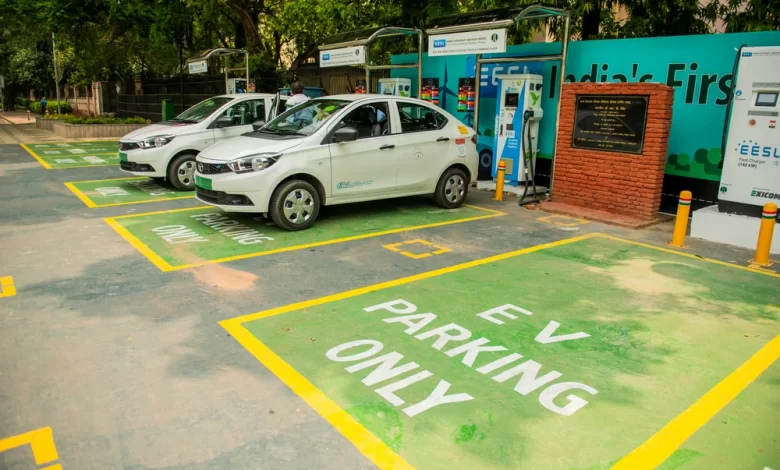Rise of the EVs in India

The global automotive industry is undergoing a significant transformation, with electric vehicles (EVs) at the forefront. India, one of the world’s largest automotive markets, is rapidly embracing this change, driven by the need to reduce pollution, dependence on fossil fuels, and the global shift towards sustainable transportation.
India’s EV market is poised for substantial growth, with the government and private sector working collaboratively to build an EV ecosystem. According to a report by India Energy Storage Alliance (IESA), the Indian EV market is expected to grow at a CAGR of 36% from 2020 to 2026, reaching approximately 6.34 million units annually by 2026. This growth is driven by increasing environmental awareness, favorable government policies, and advancements in EV technology.
The Indian government has introduced several policies to promote the adoption of EVs:
1. *FAME II (Faster Adoption and Manufacturing of Hybrid and Electric Vehicles) Scheme*: Launched in 2019, FAME II provides financial incentives for the purchase of EVs and the establishment of EV infrastructure. The scheme has an outlay of INR 10,000 crore (approximately $1.3 billion) to support 1 million electric two-wheelers, 500,000 three-wheelers, 55,000 four-wheelers, and 7,000 buses.
2. *National Electric Mobility Mission Plan (NEMMP) 2020*: This initiative aims to achieve national fuel security by promoting hybrid and electric vehicles. It targets the deployment of 6-7 million EVs on Indian roads by 2020.
3. *Production-Linked Incentive (PLI) Scheme*: The PLI scheme for Advanced Chemistry Cell (ACC) battery manufacturing, with an outlay of INR 18,100 crore (approximately $2.4 billion), aims to boost domestic manufacturing of EV batteries.
The two-wheeler segment dominates the Indian EV market, accounting for over 80% of total EV sales. The popularity of electric scooters and motorcycles is driven by their affordability, low operating costs, and government subsidies. Companies like Ola Electric, Ather Energy, and Hero Electric are leading this segment.
Electric rickshaws (e-rickshaws) are becoming increasingly popular, particularly in urban and semi-urban areas. The segment is expected to witness significant growth due to rising fuel prices and urbanization. Mahindra Electric and Piaggio are key players in this market.
The four-wheeler EV market is still in its nascent stage but is expected to grow rapidly. Companies like Tata Motors, MG Motor, and Hyundai are launching electric cars with improved range and features. The total cost of ownership for EVs is becoming more attractive compared to internal combustion engine (ICE) vehicles.
Electric buses and trucks are gaining traction, particularly for public transportation and logistics. State governments are increasingly adopting electric buses to reduce urban pollution. Ashok Leyland and Tata Motors are significant contributors to this segment.
The availability of charging infrastructure is crucial for the widespread adoption of EVs. As of 2023, India has over 2,000 public charging stations. The government aims to install 69,000 charging stations across the country by 2025. Public-private partnerships are playing a vital role in expanding the charging network. Companies like Tata Power, Fortum, and EVRE are actively setting up charging stations in major cities.
The EV industry is attracting significant investments from both domestic and international players. According to the Department for Promotion of Industry and Internal Trade (DPIIT), the Indian automotive sector, including EVs, received FDI inflows of $16.5 billion from April 2000 to March 2020.
The transition to electric mobility is expected to create numerous job opportunities across various sectors, including manufacturing, battery production, charging infrastructure, and maintenance services. The IESA estimates that the EV sector could create around 10 million direct and indirect jobs by 2030.
The potential business of electric vehicles in India is immense, with the market set for exponential growth. The combination of favorable government policies, technological advancements, and increasing environmental consciousness among consumers creates a conducive environment for the EV industry to thrive.
As India continues its journey towards a sustainable future, the electric vehicle sector will undoubtedly play a pivotal role in shaping the country’s automotive landscape.





